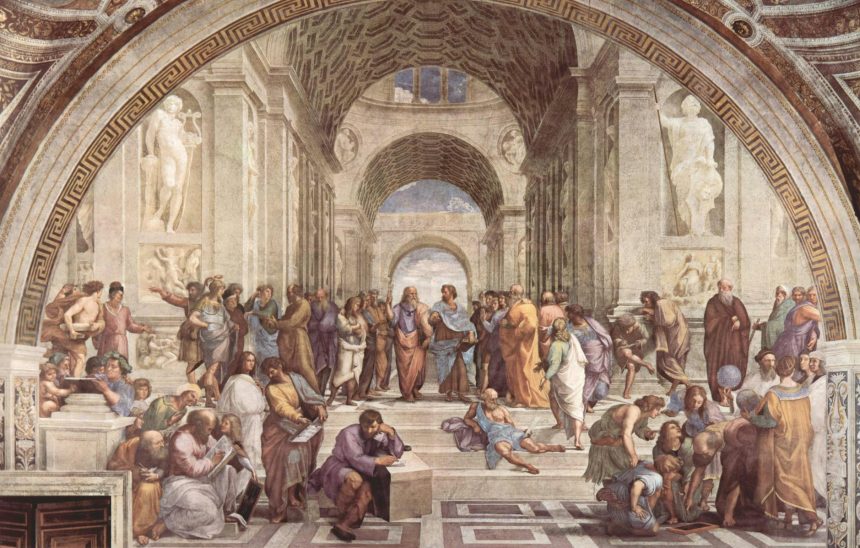philosopher-legacy-modern-thought
Philosopher’s Legacy: 5 Thinkers Who Shaped Modern Thought
Have you ever wondered how the ideas we take for granted today came to be? Often, they are the culmination of centuries of intellectual dialogue, passed down through a fascinating chain of mentors and students. Understanding this intellectual lineage is crucial to grasping the roots of contemporary thought. This article delves into the profound impact of a pivotal philosopher and their enduring influence, tracing how specific ideas travel through generations, shaping our understanding of the world.
The Enduring Influence of a Key Philosopher
The journey of ideas is rarely a straight line. Instead, it’s a rich tapestry woven by countless minds, each building upon, challenging, or reinterpreting the work of those who came before. One such influential figure, whose ideas rippled through the 20th century and continue to resonate today, is Alexandre Kojève. A Russian-French thinker, Kojève’s seminars in Paris during the 1930s became legendary, attracting some of the most brilliant minds of his era.
His unique interpretation of Georg Wilhelm Friedrich Hegel’s Phenomenology of Spirit offered a fresh perspective on history, consciousness, and the human condition. This wasn’t merely academic exercise; it was a profound re-evaluation that would inform existentialism, post-structuralism, and even political theory. The power of Kojève’s thought lay in its ability to synthesize complex philosophical concepts into a compelling narrative about the “end of history” and the struggle for recognition.
Tracing the Intellectual Lineage: From Kojève to Fukuyama
Kojève’s influence wasn’t confined to his immediate students in France. His ideas, particularly his Hegelian interpretations, traveled across continents and generations. One significant conduit for these ideas into American intellectual discourse was Allan Bloom, a distinguished American political philosopher.
Bloom, a student of Kojève, absorbed and transmitted these potent concepts through his own teaching and writing. He became a crucial link in the chain, introducing a new generation of American scholars to the depths of continental philosophy and the radical implications of Kojève’s historical vision. This intellectual lineage highlights how deeply interconnected philosophical traditions are, often transcending geographical and cultural boundaries.
The impact of this transmission is perhaps most famously seen in Francis Fukuyama’s seminal work, “The End of History and the Last Man.” Fukuyama, a student of Allan Bloom, directly engaged with and expanded upon Kojève’s ideas, albeit with his own distinct interpretations. This demonstrates a powerful example of how a single philosopher can spark a cascade of intellectual inquiry, leading to new theories and debates decades later.
Why Kojève’s Hegelian Philosophy Matters Today
Alexandre Kojève’s reinterpretation of Hegel’s philosophy, focusing on the master-slave dialectic and the “end of history,” continues to be a cornerstone of modern political philosophy. His insights provide a framework for understanding contemporary global challenges and the evolution of human societies. Here are a few reasons why his work remains relevant:
- Understanding Historical Trajectories: Kojève’s view of history as a dialectical process moving towards a definitive end state (the “universal and homogenous state”) offers a powerful lens through which to analyze geopolitical shifts and ideological conflicts.
- The Quest for Recognition: His emphasis on the human desire for recognition as a fundamental driver of historical action helps explain various social and political movements, from civil rights to identity politics.
- Critique of Modernity: Kojève’s work also provides a sophisticated critique of modern consumerism and the potential for spiritual emptiness in a post-historical world, prompting reflection on the quality of life in advanced societies.
Key Concepts from Alexandre Kojève
To fully appreciate Kojève’s legacy, it’s helpful to grasp some of his core ideas. These concepts formed the bedrock of his seminars and continue to be debated in academic circles:
- The End of History: Not a cessation of events, but the culmination of humanity’s ideological evolution, reaching a state where fundamental political and social questions are resolved.
- Master-Slave Dialectic: A central Hegelian concept, reinterpreted by Kojève to explain the historical struggle for self-consciousness and the role of labor in human development.
- Desire and Recognition: For Kojève, human desire is fundamentally a desire for the desire of another, leading to a struggle for recognition that drives historical progress.
For further reading on this influential philosopher, you might explore resources like the Stanford Encyclopedia of Philosophy entry on Alexandre Kojève or delve into the broader context of Hegelianism on Britannica.
The Impact on Modern Thought and Beyond
The echoes of Kojève’s seminars resonate far beyond academic philosophy. His ideas have permeated fields from international relations to literary criticism. The concept of the “end of history,” popularized by Fukuyama, became a touchstone for discussions about post-Cold War global order. This intellectual thread illustrates how a singular philosopher can profoundly shape the discourse of an entire era, influencing policy makers, artists, and citizens alike.
The ongoing dialogue surrounding these concepts underscores their enduring power and the complex ways in which intellectual traditions are built, interpreted, and passed down. From the lecture halls of Paris to the pages of best-selling books, the influence of thinkers like Kojève demonstrates the vital role of philosophical inquiry in understanding our collective past and shaping our future.
The journey of ideas, as we’ve seen, is a fascinating and intricate one. The legacy of a profound philosopher like Alexandre Kojève, transmitted through figures such as Allan Bloom, continues to inform contemporary debates and our understanding of history’s direction. By tracing these intellectual lineages, we gain deeper insights into the origins of our most fundamental beliefs and the ongoing evolution of human thought.
What philosophical lineage has most fascinated you? Share your thoughts in the comments below!
© 2025 thebossmind.com
Explore the profound impact of a pivotal philosopher and their intellectual lineage. Uncover how key thinkers like Alexandre Kojève influenced modern thought, shaping our understanding of history and society through figures like Allan Bloom and Francis Fukuyama.







